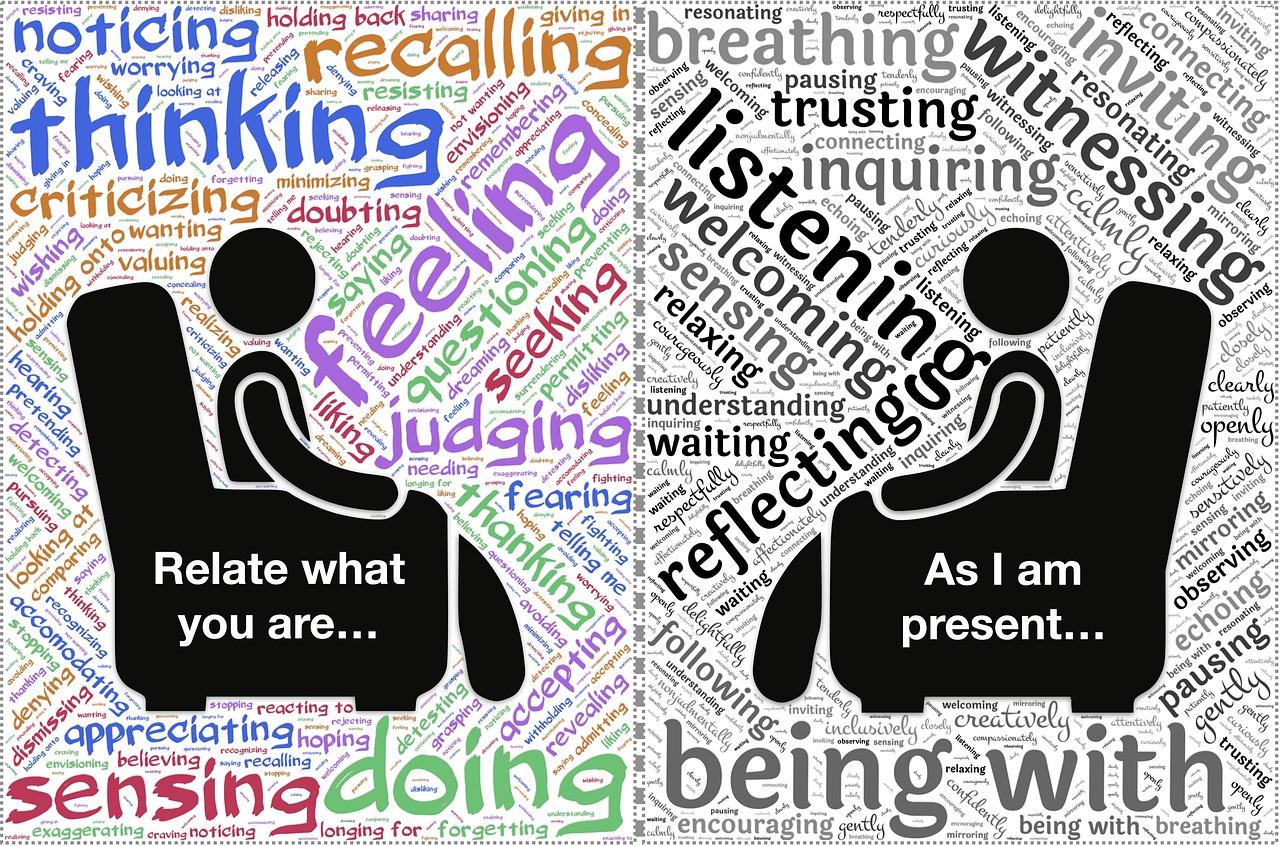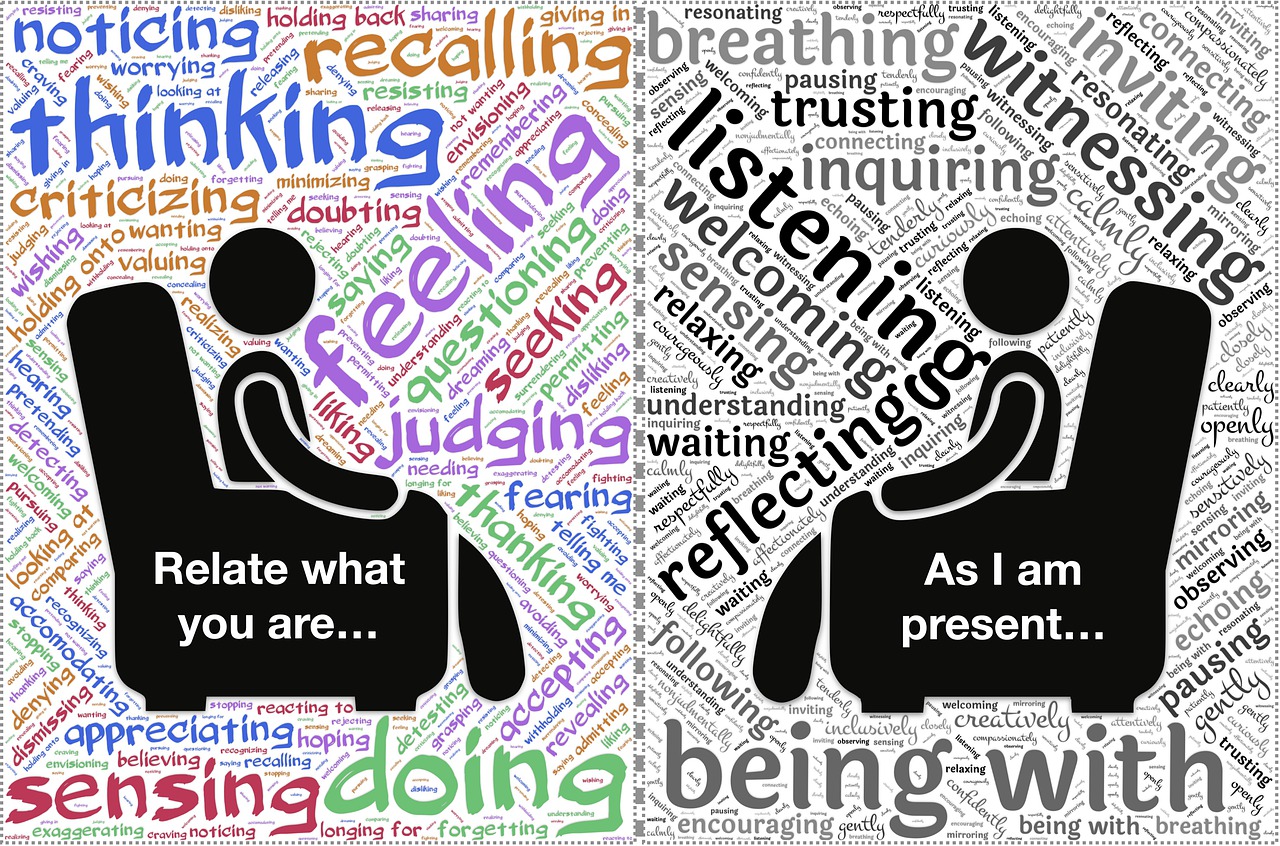
In this article, you will explore the importance of introducing and maintaining healthy boundaries in your relationship. By establishing clear boundaries, you can create a safe and respectful environment that promotes trust, honesty, and mutual understanding. Discover practical strategies and effective communication techniques to navigate potential conflicts and foster a strong, harmonious connection with your partner. Embrace the power of boundaries for a thriving and fulfilling relationship.
Setting Boundaries
Understanding the Concept of Boundaries
Setting boundaries is a fundamental aspect of establishing healthy relationships. Boundaries define what is acceptable and what is not for each individual, ensuring that personal beliefs, values, and needs are respected. Understanding the concept of boundaries is crucial to create a foundation of respect and open communication within a relationship.
Identifying Personal Boundaries
To introduce healthy boundaries, it is essential to identify and understand your own personal boundaries. Reflect on your values, needs, and limits, as well as your comfort levels in various situations. Consider what behaviors or actions cross the line for you, and what kind of treatment you require to feel respected and secure in the relationship.
Communicating Boundaries to Partner
Once you have a clear understanding of your boundaries, it is important to effectively communicate them to your partner. Open and honest communication is key to maintaining a healthy relationship. Clearly express your boundaries and explain why they are important to you. Encourage your partner to share their boundaries as well, creating a safe space for both parties to discuss and respect each other’s needs.
Benefits of Healthy Boundaries
Promotes Emotional Well-being
Establishing and maintaining healthy boundaries contributes significantly to our emotional well-being. When boundaries are in place, we feel secure and respected, leading to increased happiness and overall satisfaction in the relationship. By setting limits on what is acceptable behavior, we protect ourselves from emotional harm and ensure that our needs are met.
Enhances Communication
Boundaries play a crucial role in enhancing communication within a relationship. When both individuals understand and respect each other’s boundaries, they are more likely to engage in open and honest conversations. By clearly expressing our limits and expectations, we create an environment where issues can be discussed openly and resolved in a respectful manner.
Builds Mutual Respect and Trust
Healthy boundaries build a foundation of mutual respect and trust between partners. When both individuals in a relationship have their boundaries respected, they feel valued and validated. This strengthens the bond between partners and fosters a sense of trust, knowing that each person’s needs and emotions are respected and acknowledged.

Signs of Unhealthy Boundaries
Codependency and Enmeshment
Unhealthy boundaries often manifest as codependency and enmeshment within a relationship. Codependency refers to a reliance on the partner for self-worth and fulfillment, often leading to the neglect of individual needs and boundaries. Enmeshment occurs when personal boundaries become blurred, and one partner’s emotions and actions start to overshadow the other’s. These signs indicate an imbalance in the relationship and the need to establish healthier boundaries.
Lack of Personal Time and Space
Another sign of unhealthy boundaries is a lack of personal time and space. In a healthy relationship, both individuals should have the freedom and autonomy to pursue their own interests and spend time alone. When personal time and space are consistently invaded or neglected, it can lead to feelings of suffocation and resentment.
Difficulty Saying No
Difficulty saying no is a common sign of unhealthy boundaries. If you find yourself constantly sacrificing your own needs and wants to please your partner or avoid conflict, it may indicate a lack of boundaries. Being unable to express your needs or say no can lead to a build-up of resentment and dissatisfaction in the relationship.
Challenges in Establishing Boundaries
Fear of Conflict
One of the main challenges in establishing boundaries is the fear of conflict. Many people worry that setting boundaries will lead to conflict or rejection from their partner. However, it is important to remember that healthy relationships require open communication and mutual respect, even if it means addressing difficult topics. Overcoming the fear of conflict is crucial in order to establish and maintain healthy boundaries.
Guilt and People-Pleasing Behavior
Feelings of guilt and the tendency to people-please can also pose challenges when it comes to setting boundaries. It is common to feel guilty for asserting your needs or saying no to your partner’s requests. However, it is important to remember that setting boundaries is not selfish; it is an essential part of self-care and maintaining a healthy relationship. Overcoming the habit of people-pleasing requires self-reflection and a shift in mindset towards prioritizing your own well-being.
Past Trauma or Relationship Patterns
Past trauma or unhealthy relationship patterns can make it challenging to establish boundaries. If you have experienced emotional or physical abuse in the past, you may have difficulty trusting your own judgment and asserting your boundaries. It is important to seek therapy or support to address any underlying trauma and build the confidence to set and enforce healthy boundaries in your current relationship.

Practical Strategies for Introducing Boundaries
Reflect on Personal Values and Needs
Take the time to reflect on your personal values and needs in the relationship. What behaviors or actions are important to you? What are your deal-breakers? By gaining a clear understanding of your own boundaries, you can effectively communicate them to your partner and ensure they are respected.
Open and Honest Communication
Communication is vital when it comes to introducing boundaries. Sit down with your partner and have an open and honest conversation about your boundaries. Clearly express your expectations and needs, and encourage your partner to do the same. This creates a safe space for both individuals to be heard and understood.
Negotiating Compromises
Establishing boundaries does not mean shutting out your partner’s needs completely. It is important to find a middle ground and negotiate compromises that work for both individuals. Flexibility and willingness to understand each other’s perspectives can help establish a healthy balance of boundaries within the relationship.
Maintaining Healthy Boundaries
Regular Self-Reflection and Evaluation
Maintaining healthy boundaries requires regular self-reflection and evaluation. Take the time to assess whether your boundaries are being respected and if any adjustments need to be made. Regularly check in with yourself to ensure that you are honoring your own needs and communicating any changes in boundaries to your partner.
Consistent Reinforcement of Boundaries
Establishing boundaries is not a one-time event; it requires consistent reinforcement. Be assertive in enforcing your boundaries and addressing any boundary violations. Consistency is key to creating a foundation of respect and ensuring that your needs are consistently met within the relationship.
Dealing with Boundary Violations
Inevitably, boundary violations may occur within a relationship. When this happens, it is important to address them promptly and assertively. Communicate your feelings and concerns to your partner, and work together to find a resolution that respects your boundaries. Seek support from a therapist or counselor if needed to navigate these challenging situations.

Balancing Independence and Connectedness
Recognizing the Importance of Individuality
In healthy relationships, it is crucial to recognize and value the importance of individuality. Both partners should maintain their own identities, interests, and goals outside of the relationship. Recognizing and respecting each other’s individuality allows for a healthy balance of independence and connectedness.
Cultivating Interdependence
While maintaining individuality is important, it is equally important to cultivate interdependence within the relationship. Interdependence refers to a mutually beneficial reliance on each other, where both individuals support and uplift one another. By fostering interdependence, partners can find common ground and work together while respecting each other’s boundaries.
Finding Common Ground
Finding common ground is essential to balance independence and connectedness in a relationship. Identifying shared interests, goals, and values creates a strong foundation for understanding and respecting each other’s boundaries. By finding common ground, partners can establish boundaries that promote a healthy and fulfilling relationship.
Handling Resistance and Pushback
Emphasizing Mutual Benefit
When facing resistance or pushback from your partner regarding boundaries, it is important to emphasize the mutual benefit of setting and respecting boundaries. Frame the conversation around how establishing boundaries can improve the overall well-being and satisfaction of both individuals in the relationship. Emphasize that boundaries promote a healthier and happier partnership.
Seeking Couples Therapy or Counseling
If communication and negotiation become challenging, seeking the assistance of a couples therapist or counselor can be beneficial. A trained professional can help facilitate open and productive conversations about boundaries and provide guidance on navigating any difficulties or disagreements that may arise. Couples therapy can be a valuable resource in strengthening relationships and developing healthy boundaries.
Educating Yourself on Relationship Dynamics
Educating yourself on relationship dynamics can also be helpful when handling resistance or pushback. By understanding common challenges and misconceptions surrounding boundaries, you can better navigate any resistance from your partner. Reading books, attending workshops, or engaging in online resources can provide the knowledge and tools needed to address boundaries effectively.
Boundaries in Different Relationship Contexts
Romantic Partnerships
Establishing and maintaining healthy boundaries in romantic partnerships is crucial for the success of the relationship. Clear communication, respect for each other’s personal space and time, and open discussions about needs and expectations are essential. Boundaries help maintain individuality while promoting a strong and fulfilling connection.
Family Relationships
Boundaries are equally important in family relationships. It is essential to establish boundaries with family members to preserve individual autonomy, limit unhealthy dynamics, and promote healthy communication and respect. Setting boundaries may involve establishing limits on intrusive behavior, respecting personal decisions, and addressing any toxic patterns that may exist within the family.
Friendships and Work Relationships
Boundaries are not limited to romantic and familial relationships; they are vital in friendships and work relationships as well. In friendships, boundaries can help maintain healthy dynamics, respect personal space, and ensure mutual support and understanding. Work relationships benefit from clear boundaries that establish appropriate professional behavior and personal limits to maintain a healthy work-life balance.
Reaping the Rewards of Healthy Boundaries
Increased Relationship Satisfaction
By establishing and maintaining healthy boundaries, there is a significant increase in relationship satisfaction. Both partners feel respected, their needs are met, and there is a sense of security within the relationship. Healthy boundaries foster open and honest communication, leading to a deeper connection and overall satisfaction.
Improved Mental and Emotional Well-being
Healthy boundaries contribute to improved mental and emotional well-being. When individuals prioritize their own needs and establish boundaries, they experience less stress, anxiety, and resentment. Boundaries provide a sense of control, allowing individuals to prioritize self-care and maintain their own well-being.
Enhanced Personal Growth
Establishing healthy boundaries facilitates personal growth within relationships. By recognizing and honoring our own values and needs, we develop a stronger sense of self and cultivate healthier relationships. Healthy boundaries provide the opportunity for personal development, self-reflection, and the exploration of individual interests and goals.
In conclusion, introducing and maintaining healthy boundaries is essential for creating and nurturing fulfilling relationships. By understanding the concept of boundaries, identifying personal boundaries, and effectively communicating them to our partners, we can enjoy the benefits of emotional well-being, enhanced communication, and mutual respect and trust. Although challenges may arise, practical strategies such as reflecting on personal values, open communication, and negotiating compromises can help establish and maintain boundaries. Balancing independence and connectedness, handling resistance and pushback, and recognizing the importance of boundaries in different relationship contexts further contribute to reaping the rewards of healthy boundaries. With healthy boundaries, we can foster increased relationship satisfaction, improved mental and emotional well-being, and enhanced personal growth.






